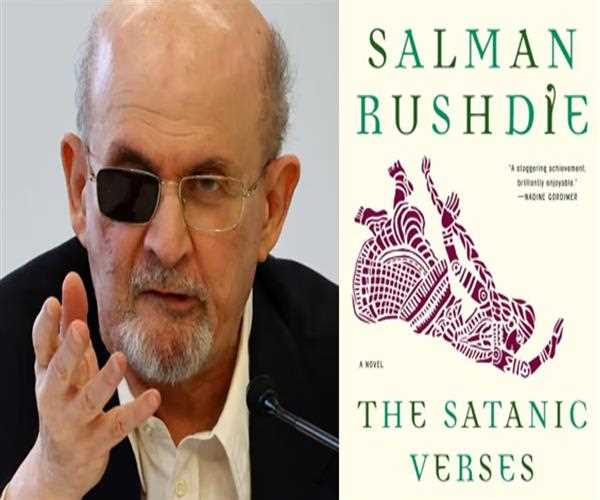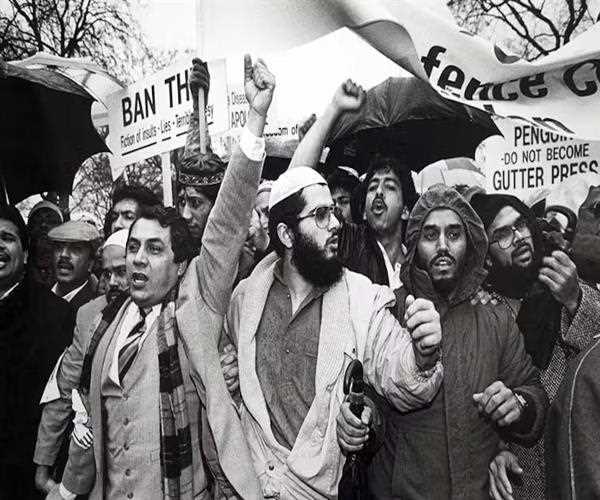
20-Nov-2024 , Updated on 11/20/2024 6:24:49 AM
My Views on 'Satanic Versus' Most Controversial Book on Islam
Salman Rushdie is a British-American novelist of Indian origin and well-known in the genre of magic realism. He was one among 100 influential people according to the Times magazine in 2023. His books like ‘Midnight’s Children’ (1981) for which he won the Bookers Prize in the same year and ‘The Satanic Verses’ (1988) are immensely popular in the field of literature till date. The events followed by the publication of The Satan Verses can be found in ‘Joseph Anon: A Memoir’.
‘The Satanic Verses’ was his fourth novel, surrounded by controversy it went as far as Fatwa was announced against Salman Rushdie, and the book was banned in twenty countries, similarly, the book received appreciation from The New York Times, The New Yorker, Library Journal, Publisher Weekly, Virginia Quarterly Review magazine as well as literary critics namely Harold bloom, Timothy Brennan, Muhammad Mashuq Ibn Ally, M.D.Fletcher. Rushdie himself considered the book “Migration, metamorphosis, divided selves, love, death, London and Bombay.
The theme of identity crisis can be observed in this book as the character of Saladin Chamcha struggles to adjust in England after migrating from India, it is also seen that when it returns to India it doesn’t feel like home anymore. As his journey progresses, he embraces a different culture and marries an English woman. The feeling of being alienated is prominent when he is arrested without proof or evidence.
The novel starts with the quote “To be born again” (2). It can be noted that the character of Gibreel has been fond of metamorphosis and rebirth since childhood. Rebirth is one of the core themes of the novel, as migrating from India to England lets go of old identity and embraces the new one. The transformation from human to angel and devil is considered a rebirth of the character in a way.
Metamorphosis is a prominent theme in this book as the book proceeds characters of Saladin Chamcha and Gibreel Farishta transform into Devil and Arcangel respectively. Once a sulfurous breath of Farishta turns into a sweet smell and has a halo on his head, while Chamcha grows horns and turns into a goat-like creature. Due to the transformation from human to Arcangel Gibreel starts to think of himself as an angel later diagnosed as Schizophrenic in the later part of the novel. They don’t only transform physically but also see changes in their mannerisms. Many instances are dream visions in the novel so much so that Gibreel is scared of falling asleep and tries a way to stay awake. The first instance of dream vision can be noticed in chapter 4 where when he takes a nap and sees himself walking down the aisle and seeing the female suicide bomber.

Salman Rushdie has symbolized many historical events for instance in the 1983 Hajj pilgrim when the leader assured the pilgrims that the sea would part and lose their lives. Second was the postcolonial view of immigrants that they could neither go back nor express their feelings about where they stayed which was expressed through the character of Chamcha. The narrator doesn't show much in the novel but he comes up with existential questions to bring readers attention to him.
Conclusion
The mention of twelve women of the brothel acting as Mahound’s wives and symbolization of the 1983 Hajj pilgrim. The instance where Faristha loses his faith in God. Some instances can be interpreted as satiric. Hence, the people feel offended. Reading the novel from a literary perspective one can find the beauty of the story, hidden symbols like water, and fire in the text similarly understand the parent-children relationship and cultural identities. Believer and non-believer characters can be found. Going beyond the religious aspects of the text the novel can be considered diasporic magic realism.

Student
I like writing including articles, blogs, news, and sometimes my thoughts. I am a spiritual enthusiast who always seeks ways to enhance the well-being of all.
Join Our Newsletter
Subscribe to our newsletter to receive emails about new views posts, releases and updates.
Copyright 2010 - 2026 MindStick Software Pvt. Ltd. All Rights Reserved Privacy Policy | Terms & Conditions | Cookie Policy